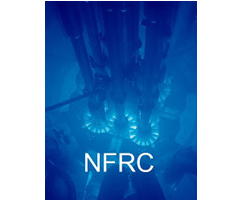When it Comes to Causing Global Warming, Natural Gas Beats Coal Hands Down

By Clinton Crackel
January 15, 2018 - Several studies, including one recently released by NASA, have proven methane (CH4) is a significant contributor to global warming. Natural gas is mostly methane, and CH4 traps 86 times as much heat as CO2. Even a very small leakage rate of CH4 can have a large climate change impact, enough to make burning coal, especially with the application of clean coal technology, much more advantageous to the atmosphere than burning natural gas.
Fracking has become a widespread means of extracting natural gas and shale oil. Unfortunately, fracking has been found to be a significant contributor to global warming because of the leakage of methane to the atmosphere from fracking operations. Yet, even though fracking has been banned in other countries, in the United States fracking continues to be used with few restrictions thanks in great part to the legislative protections afforded it by key elected officials who benefit handsomely from the political action contributions made by the petroleum industry.
The infusion of massive amounts of private money into the political arena has also allowed renewable energy sources such as solar and wind generation to come to the forefront even though both sources have been proven to be inefficient and can’t compete with the reliable electrical output of coal-fired or nuclear power plants. Even though solar and wind generators are flaunted as clean energy sources in terms of global warming, the manufacturers of these green energy sources rely heavily on natural gas or coal as the fuel for the heat used in blast furnaces and on natural gas-fired, coal-fired or nuclear power plants for the electricity used during the manufacturing process.
Wind generator blades are usually fiberglass that is made from petrochemicals. These chemicals require the extraction of oil and natural gas. Then again, a coal to liquid synthetic fuel process can provide the same petrochemicals in lieu of fracking for natural gas and crude oil.
Interestingly enough, even though wind generators on average have a 30% reliability factor, some manufacturers have incorporated natural gas-fired turbines into the generators to increase their reliability in the event the wind speed drops below the threshold speed required to generate electricity. Also, many natural gas-fired turbines are capable of burning fuel oil as a substitute for natural gas. A coal to liquid synthetic fuel process is capable of providing the same fuel oil.
For that matter, renewables energy sources such as solar and wind generators rely on baseload electricity from the grid as a backup to the loss in generating capacity and to provide steady state electricity for such functions as lights, controllers, instruments, blade pitch control, etcetera.
Comparing solar power to baseload power plants, solar power requires about 14,000 solar panels and one ton of storage batteries on a minimum of two and one-half acres of ground to generate 1 MW of electricity (MWe). For a solar farm to match the output of one 1,000 MWe net coal-fired or nuclear power plant, a minimum of 2,500 acres or an area of nearly four square miles is needed.
Granted, land usage is based on the type of technology along with the module mounting structure topology (fixed or seasonal mounting or constant tracking mounting with drive) used, and a solar farm without a heat storage to steam generating capability generates electricity in direct current not alternating current.
Obviously, natural gas plays an integral role in the manufacture of solar power components, and considering the number of solar units and farms already constructed and under construction, I wonder how much natural gas has been consumed so far?
In conclusion, considering the ongoing reliance of the solar and wind energy industry on natural gas, I can’t help but suspect the petroleum industry has been, and continues to be, a key donor to the anti-coal and antinuclear movements promoting renewable energy.
.png)
Clinton Crackel

